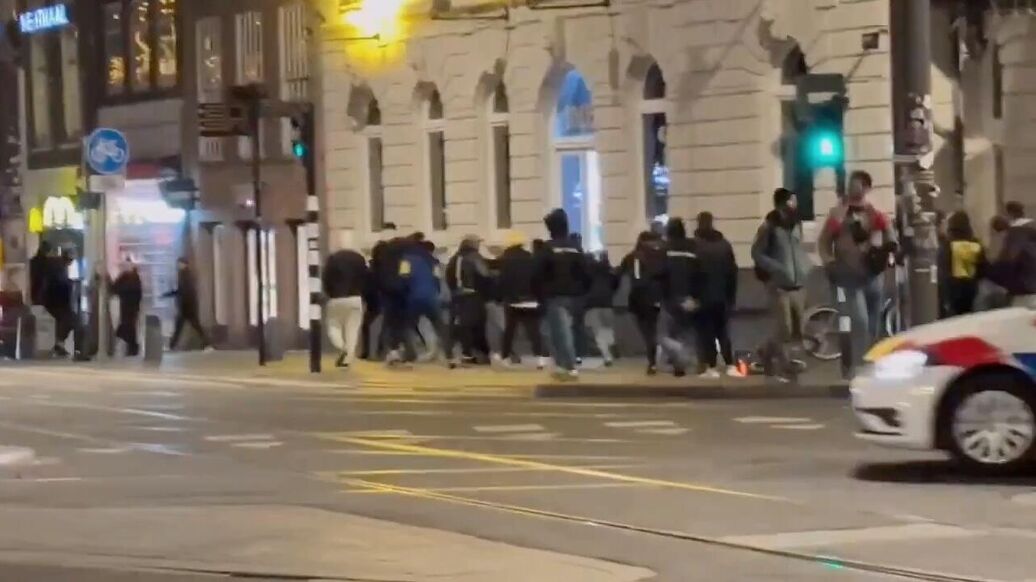Police probing 450 patient deaths after being prescribed opioids at scandal-hit Gosport War Memorial Hospital identify 24 suspects
A total of 24 suspects have been identified by police investigating the deaths of hundreds of patients at scandal-hit Gosport War Memorial Hospital.
A total of 24 suspects have been identified by police investigating the deaths of hundreds of patients at scandal-hit Gosport War Memorial Hospital.
Case files have started to be sent to the Crown Prosecution Service, according to Kent Police.
An independent police investigation was launched into the community hospital in Hampshire after a probe found hundreds of patients had their lives shortened through the use of opioids between 1987 and 2001.
In 2018, the Gosport Independent Panel report concluded the lives of more than 450 people were shortened because of the routine practice of prescribing and administering opioids, and that at least another 200 patients were likely affected.
The Kent and Essex Serious Crime Directorate, which is managing the investigation, codenamed Operation Magenta, said it is reviewing the records of more than 750 patients and taken 1,200 witness statements.

A total of 24 suspects have been identified by police investigating the deaths of hundreds of patients at scandal-hit Gosport War Memorial Hospital

Eva Page (pictured) died at the hospital. Relatives of some of those who died previously campaigned for prosecutions to be brought over the deaths

Brian Cunningham (pictured) was also a victim of opioid usage at the hospital
The force has confirmed that the number of suspects being interviewed has risen to 24, made up of 21 for alleged gross negligence manslaughter and three for alleged offences under the Health and Safety at Work Act.
Deputy Chief Constable Neil Jerome of Operation Magenta said: The independent investigation into deaths at Gosport War Memorial Hospital, Hampshire, between 1987 and 2001 is one of the largest and most complex of its nature in the history of UK policing.
Our team consists of serving and retired detectives who have so far assessed more than three million pages of documents including the medical records of over 750 patients, and taken around 1,200 witness statements from affected family members.
Our enquiries remain ongoing and we have now reached the stage where we have started to submit case files in relation to individual patients to the Crown Prosecution Service.
It will be the CPS decision as to whether or not any criminal charges are brought in relation to these cases.
The families of those who died at the hospital were informed at the start of the investigation that the full range of criminal offences would be considered.
The total number of suspects identified to date is 24, including 21 for alleged gross negligence manslaughter and three for alleged offences under the Health and Safety at Work Act.

Dulcie Middleton (pictured) was also one of the victims

Cliff Houghton (pictured) was another victim. More than 450 people had their lives shortened at the hospital

An independent police investigation was launched into the community hospital in Hampshire after a probe found hundreds of patients had their lives shortened through the use of opioids

In 2018, the Gosport Independent Panel report concluded the lives of more than 450 people were shortened because of the routine practice of prescribing and administering opioids
Interviews are being carried out under caution and there have been no arrests to date.
Whilst we have never provided anyone with an estimate of how long our enquiries will last, family members and the general public can be confident we are working as quickly and thoroughly as possible to ensure Operation Magenta is the decisive police investigation into the deaths at Gosport War Memorial Hospital.
Last year, the High Court agreed with requests by the families of Gladys Richards, Arthur Cunningham and Robert Wilson for new inquests to be held into their deaths.
Inquests were originally held into Ms Richardss death in April 2013 and into Mr Cunningham and Mr Wilsons deaths in March and April 2009.
The 2018 report said there was a disregard for human life and a culture of shortening lives of a large number of patients at the hospital.
It stated there was an institutionalised regime of prescribing and administering dangerous doses of a hazardous combination of medication not clinically indicated or justified.
The inquiry, led by the former bishop of Liverpool James Jones, did not ascribe criminal or civil liability for the deaths.
The families say repeated ineffective investigations into hundreds of deaths at the hospital have left them without any justice or closure and have called for a new judge and jury inquest to be held rather than conducted by a coroner.










